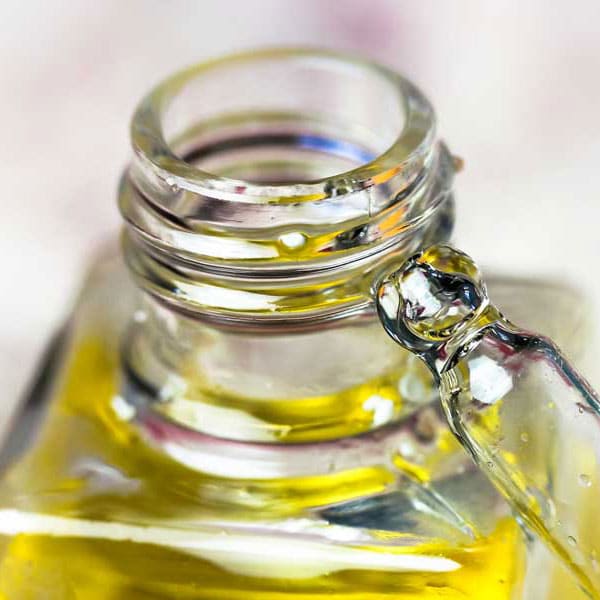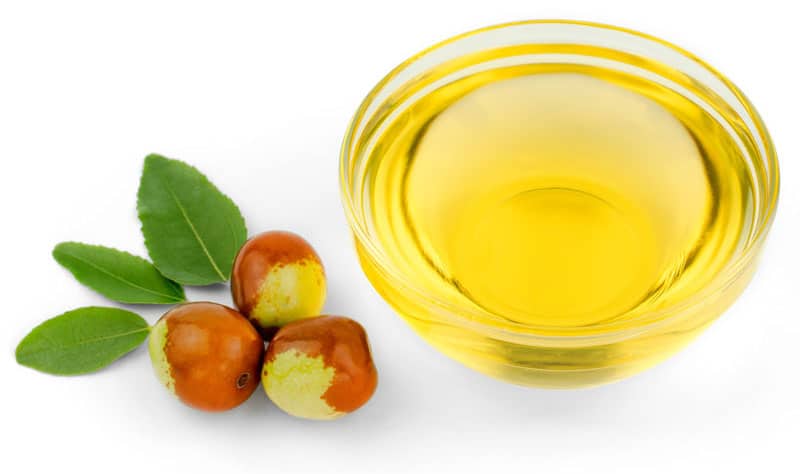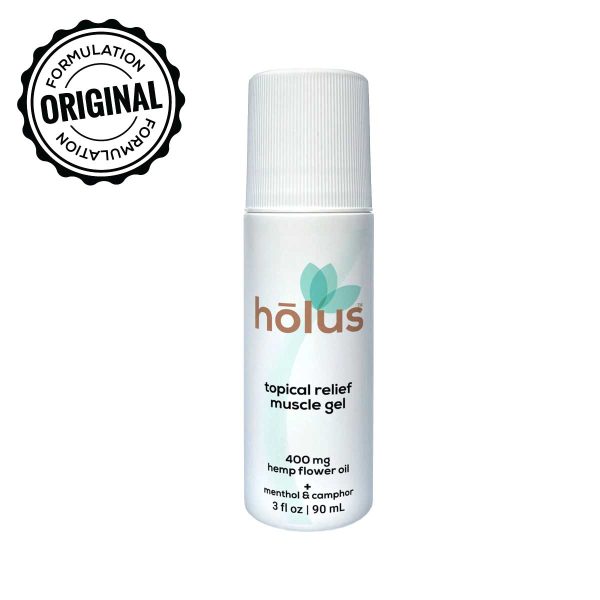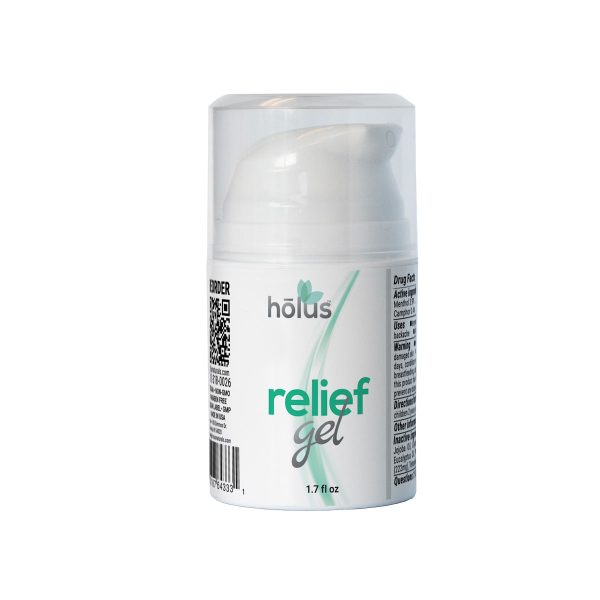Jojoba Oil: Skin Care Benefits and Top Uses
The extract obtained from the seeds of Simmondsia Chinensis, known as jojoba oil, has become increasingly popular in recent times due to its various beneficial effects on skin health. This golden liquid is packed with essential fatty acids, including oleic acid, which provides nourishing and moisturizing properties.
In this review, we explore how jojoba oil can be used topically to nourish the skin and protect against environmental stressors while controlling oily skin. We will also explore how the antioxidant properties of this natural wonder contribute to anti-inflammatory effects and protect against environmental stressors.
Benefits of Jojoba Oil for Skin
Jojoba oil is a natural moisturizer that contains vitamins B and E. This versatile oil offers numerous benefits to the skin, such as antioxidants, making it an essential addition to your skincare routine.

Vitamin B and E: Nourishment for Your Skin
Rich in vitamins B and E, jojoba oil provides essential nutrients that help nourish your skin. Vitamin B helps maintain healthy skin by improving its texture, while vitamin E acts as a powerful antioxidant that protects against environmental damage caused by free radicals.
Hypoallergenic & Noncomedogenic: Safe for All Skin Types
- Hypoallergenic: Jojoba oil is gentle enough even for sensitive skin types due to its hypoallergenic nature. Which means it’s less likely to cause allergic reactions or irritations compared to other oils.
- Noncomedogenic: Unlike some other oils, jojoba oil is noncomedogenic, meaning it won’t clog your pores. This makes it an ideal choice for those with oily skin.
Jojoba oil is an essential part of any skincare regimen, offering numerous benefits that are suitable for all skin types. So whether you’re looking to nourish your skin with essential vitamins, fight off acne-causing bacteria, or simply maintain healthy-looking skin without causing irritation, this versatile oil has got you covered.
How to Use Jojoba Oil
Jojoba oil is a multifaceted, advantageous natural ingredient that can be utilized in various ways for skin care. It can be applied directly to the skin or added to other products, such as creams or gels. To get the most out of jojoba oil, we’ll explore how to incorporate it into your daily skincare routine.
Applying Jojoba Oil Directly on the Skin
To use jojoba oil topically, follow these simple steps:
- First, cleanse your skin with a mild cleanser and pat it dry.
- Next, pour a few drops of jojoba oil onto your fingertips or palm.
- Gently massage the oil onto your skin, where you may experience dryness or irritation using circular motions.
- If desired, allow the oil to absorb into your skin for several minutes before applying any additional products.

Antioxidant Properties of Jojoba Oil
The remarkable antioxidant properties of jojoba oil make it an essential ingredient for maintaining healthy and youthful skin. These antioxidants help protect the skin from free radical damage caused by environmental factors such as UV radiation and pollution. This section will look at how these antioxidants can help your skin.
Role of Antioxidants in Skin Health
Antioxidants are substances that neutralize harmful molecules called free radicals, which can cause oxidative stress on the cells in our body, including our skin cells. Oxidative stress leads to premature aging, inflammation, and even certain types of cancer. By incorporating antioxidants into your skincare routine through products like jojoba oil, you can combat these adverse effects on your skin.
- Vitamin E: Jojoba oil is rich in Vitamin E, a powerful antioxidant known for its ability to reduce UV-induced damage and inflammation while promoting cell regeneration. This makes it particularly beneficial for protecting against sunburns and reducing signs of aging.
- Vitamin B: The presence of various B vitamins in jojoba oil helps improve overall skin health by boosting collagen production, strengthening the lipid barrier function (which keeps moisture locked inside), and fighting off bacteria that may cause acne or other infections.
- Ferulic Acid: Found naturally within jojoba seeds, ferulic acid – is another potent antioxidant with anti-inflammatory properties that help calm irritated or inflamed skin conditions such as eczema or psoriasis.
Sebum Control with Jojoba Oil
Jojoba oil can be a great addition to your skincare routine if you’re looking for ways to manage oily skin and reduce acne breakouts. In addition, Jojoba oil is an excellent option for those looking to manage their sebum production, potentially leading to fewer breakouts and improved skin health.
Why controlling sebum production matters
Sebum is a natural substance produced by our skin’s sebaceous glands that helps keep it moisturized and protected. However, excessive sebum production can clog pores and create an environment where bacteria thrive, leading to inflammation and acne breakouts. Regulating the amount of sebum produced, can minimize these issues while still maintaining healthy skin.
The science behind jojoba oil’s Effectiveness
Studies have shown that jojoba oil closely resembles the oil we produce in its chemical composition. This similarity allows it to effectively “trick” our skin into thinking it has already produced enough oil, thus reducing excess production without causing dryness or irritation.
Collagen Synthesis with Jojoba Oil

Jojoba oil’s antioxidants may aid in the generation of collagen, potentially diminishing wrinkles and increasing skin suppleness. Collagen is a protein that provides structure to our skin, making it firm and youthful-looking. As we age, collagen production decreases, leading to visible signs of aging, such as wrinkles and sagging skin.
Jojoba oil’s rich antioxidant content helps combat oxidative stress caused by free radicals, which are known to damage collagen fibers in the skin. By neutralizing these harmful molecules, jojoba oil supports healthy collagen levels for more vibrant and younger-looking skin.
Aiding Collagen Production through Vitamin E
One key component found in jojoba oil that contributes to its potential benefits for collagen synthesis is vitamin E. This powerful antioxidant has been shown to have a positive impact on overall skin health by protecting against UV-induced damage.
Vitamin E: Vitamin E helps maintain healthy cell function by preventing lipid peroxidation – a process where free radicals attack lipids (fats) within cell membranes causing cellular damage. By defending cells from this type of harm, vitamin E aids in preserving their integrity and promoting optimal functioning – including the production of essential proteins like collagen.
Jojoba oil has many benefits for the skin, from its moisturizing and antibacterial properties to its antioxidant content. Its ability to help control sebum production and potentially promote collagen synthesis makes it an excellent choice for topical use. Given its lack of comedogenicity and low allergenicity, jojoba oil is an ideal choice for those looking to improve their skin health









